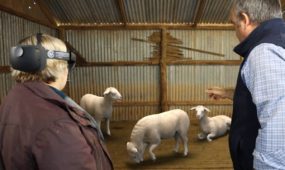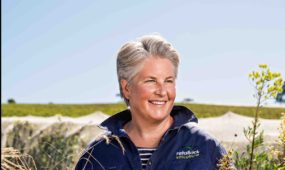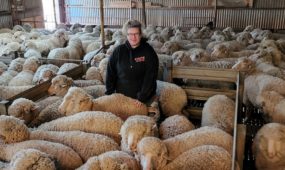Farmer co-op fuels eco-friendly diesel
Primary Industries
A DECENTRALISED biodiesel generator will help farmers take fuel production into their own hands.

Sign up to receive notifications about new stories in this category.
Thank you for subscribing to story notifications.
Developed in South Australia, the technology allows farmers to create their own fuel from rotational cover crops such as mustard.
Biofuel is a replacement for traditional petroleum based diesel and due to the nature of its production, can result in up to 70 percent reduction in CO2 emissions over its lifetime.
Unlike many biofuel solutions, SA BioFuels are targeting small communities of farmers, favouring a decentralised, co-operative approach.
“We decided on that approach because we’re trying to allow the farmers or communities to be in control of how much they spend,” SA BioFuels founder Morgan Hunter said.
“We’ve developed it into a more containerised system for a community, so a group of famers or a council can have it and then the farmers can utilise that one resource.
“Our production unit does 1.2 million litres per year, but a farm doesn’t use that much fuel, for example in the Malee area you’re using around 200,000 litres per farm, so we’re looking at four to five farmers to utilise each setup.”
Each farmer involved in the co-op can bring in the seed from oil based plants such as mustard or safflower, which are already used as rotational crops by wheat farmers.
Farmers load their seed into the producer, the size of a shipping container, and then drive away with an equivalent amount of fuel.
A tonne of mustard nets the farmer 350 litres of fuel and a tonne of safflower produces 300 litres.
“The idea is that for a community site, a farmer can come in and drop off say a tonne of seed, and then they collect that quantity of fuel, it doesn’t have to be from their seed,” Hunter said.
“The system is a bit like a community bank.”
The biodiesel produced by SA BioFuels is functionally the same as petroleum based diesel, and can be used in any diesel car or generator without modification.
To cover the cost of setting up and maintaining each producer, SA BioFuels will charge $0.4-0.45 AUD per litre of fuel produced, less than half of the current $1.30 AUD per litre price of petroleum diesel.
“It can save them quite a bit of money in fuel costs, and so farmers don’t have to worry about supply and demand,” Hunter said.
“They’re normally the first ones to feel the pinch when we have a fuel shortage here, and they actually need it more than the city people do.
“By having production decentralised, it means you’re not trucking fuel across the country, so you’re saving that cost as well.”
Currently BioFuel SA has one trial co-op set up in Kaniva, Victoria, with a second facility due to open in Tailem Bend, South Australia later this year.
“The idea of the Tailem Bend site is that a farmer can come along, they can see that it does work, take some fuel home to try it out and see it’s not something too difficult, it’s something they can use,” Hunter said.
The company is also currently in talks with several councils on South Australia’s Eyre Peninsula to set up and maintain bio-diesel producers for the community.
Jump to next article



